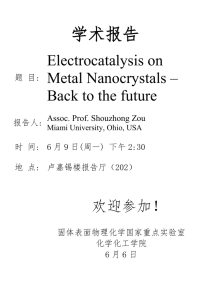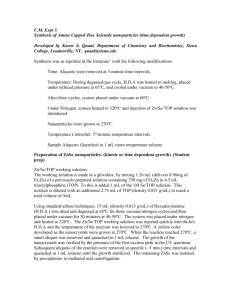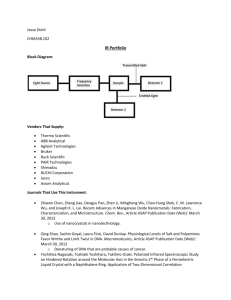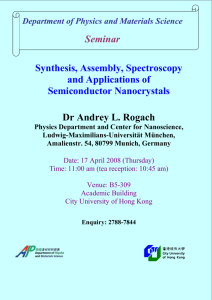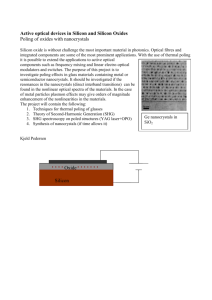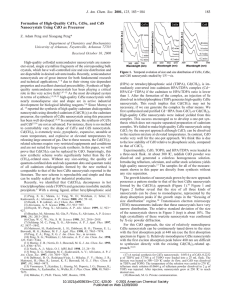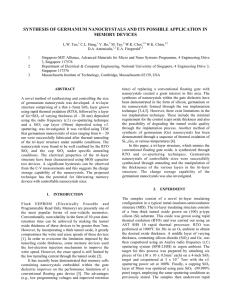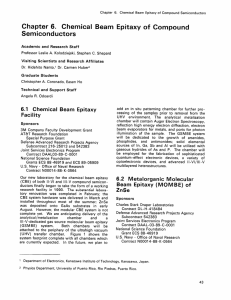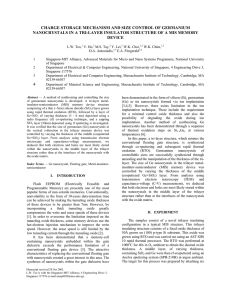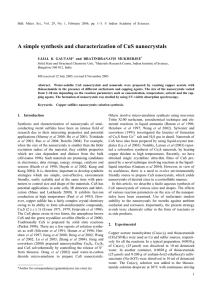TJ (Lakis) Mountziaris
advertisement
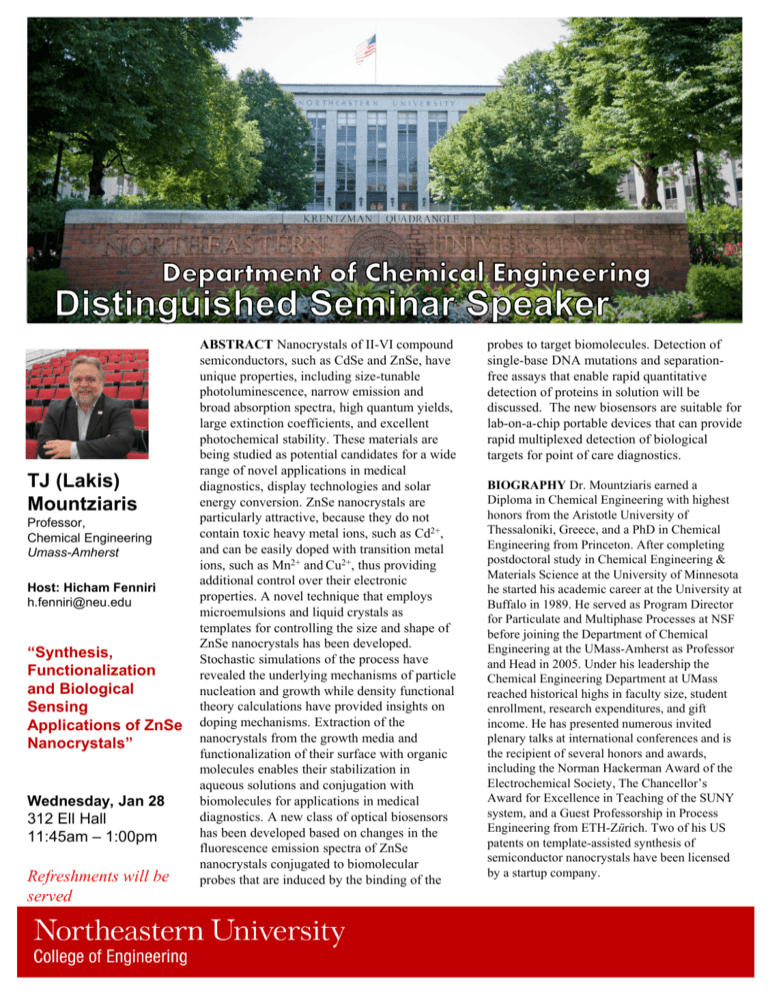
TJ (Lakis) Mountziaris Professor, Chemical Engineering Umass-Amherst Host: Hicham Fenniri h.fenniri@neu.edu “Synthesis, Functionalization and Biological Sensing Applications of ZnSe Nanocrystals” Wednesday, Jan 28 312 Ell Hall 11:45am – 1:00pm Refreshments will be served ABSTRACT Nanocrystals of II-VI compound semiconductors, such as CdSe and ZnSe, have unique properties, including size-tunable photoluminescence, narrow emission and broad absorption spectra, high quantum yields, large extinction coefficients, and excellent photochemical stability. These materials are being studied as potential candidates for a wide range of novel applications in medical diagnostics, display technologies and solar energy conversion. ZnSe nanocrystals are particularly attractive, because they do not contain toxic heavy metal ions, such as Cd2+, and can be easily doped with transition metal ions, such as Mn2+ and Cu2+, thus providing additional control over their electronic properties. A novel technique that employs microemulsions and liquid crystals as templates for controlling the size and shape of ZnSe nanocrystals has been developed. Stochastic simulations of the process have revealed the underlying mechanisms of particle nucleation and growth while density functional theory calculations have provided insights on doping mechanisms. Extraction of the nanocrystals from the growth media and functionalization of their surface with organic molecules enables their stabilization in aqueous solutions and conjugation with biomolecules for applications in medical diagnostics. A new class of optical biosensors has been developed based on changes in the fluorescence emission spectra of ZnSe nanocrystals conjugated to biomolecular probes that are induced by the binding of the probes to target biomolecules. Detection of single-base DNA mutations and separationfree assays that enable rapid quantitative detection of proteins in solution will be discussed. The new biosensors are suitable for lab-on-a-chip portable devices that can provide rapid multiplexed detection of biological targets for point of care diagnostics. BIOGRAPHY Dr. Mountziaris earned a Diploma in Chemical Engineering with highest honors from the Aristotle University of Thessaloniki, Greece, and a PhD in Chemical Engineering from Princeton. After completing postdoctoral study in Chemical Engineering & Materials Science at the University of Minnesota he started his academic career at the University at Buffalo in 1989. He served as Program Director for Particulate and Multiphase Processes at NSF before joining the Department of Chemical Engineering at the UMass-Amherst as Professor and Head in 2005. Under his leadership the Chemical Engineering Department at UMass reached historical highs in faculty size, student enrollment, research expenditures, and gift income. He has presented numerous invited plenary talks at international conferences and is the recipient of several honors and awards, including the Norman Hackerman Award of the Electrochemical Society, The Chancellor’s Award for Excellence in Teaching of the SUNY system, and a Guest Professorship in Process Engineering from ETH-Zürich. Two of his US patents on template-assisted synthesis of semiconductor nanocrystals have been licensed by a startup company.
